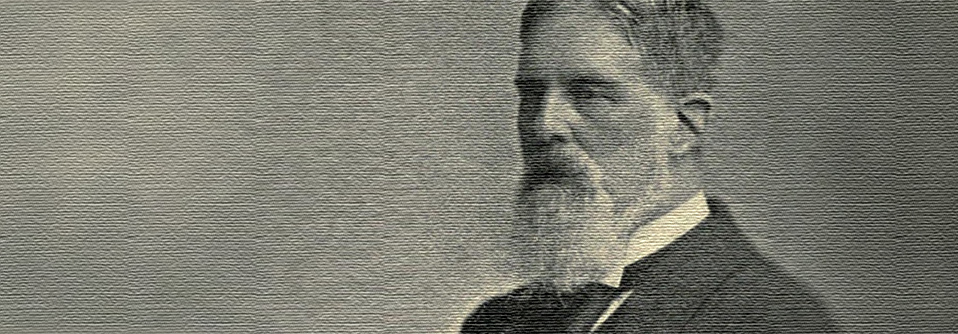The Golden Treasurer: F. T. Palgrave

I first became acquainted with the name of Palgrave in 1950, when my brother Rhodri and I were invited ( with our parents) to be the only guests at the ninetieth birthday party of the Revd Howell Elvet Lewis ‘ Elfed’, at his home in Penarth, near Cardiff. Elfed’s career as a Congregational minister had begun in 1880 at Buckley, not far from Hawarden Castle in Flintshire, home of the Prime Minister, W. E. Gladstone, and Elfed’s first wife was the daughter of a tenant on the estate.
Naturally enough, conversation turned to Elfed’s acquaintance with Gladstone and his wife, and some of their guests at Hawarden, such as Lord Tennyson and Francis Turner Palgrave. Elfed himself impressed us with his five-year engagement diaries, in which he had already accepted preaching engagements stretching far into the future. In fact, he died in 1953, and Elfed’s widow, with great generosity, and in her husband’s memory, gave us as a present a splendid second edition of Palgrave’s Golden Treasury, signed by the editor himself, and enclosing a letter sent by him to Elfed in 1891 from Lyme Regis in Dorset, thanking him for a Welsh translation of one of Palgrave’s hymns, explaining that he could understand the translation, ‘a dictionary assisting’.1 But who exactly was Palgrave, and how had he come to learn Welsh?
